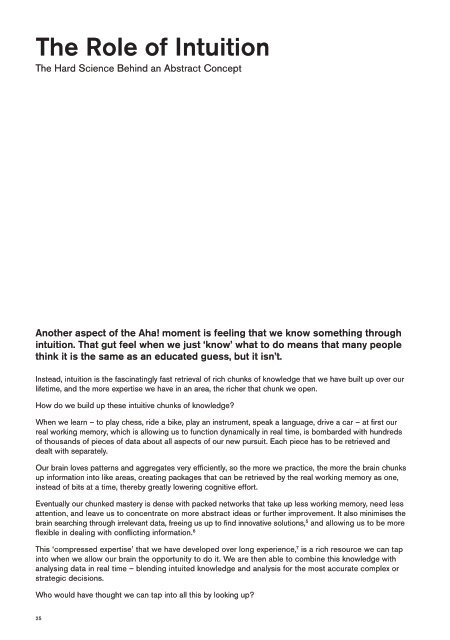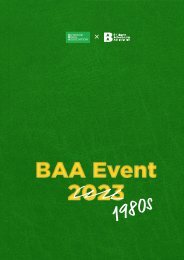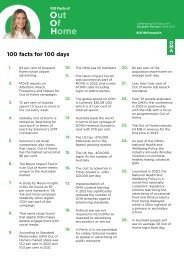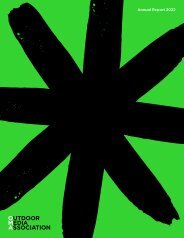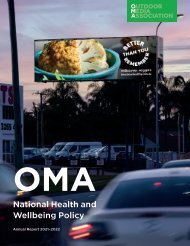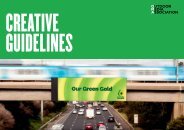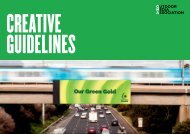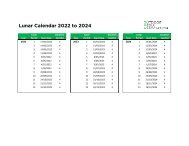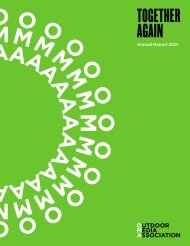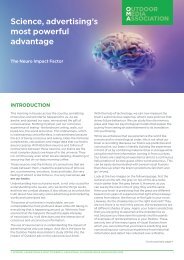THE ART AND SCIENCE OF LOOKING UP REPORT
Create successful ePaper yourself
Turn your PDF publications into a flip-book with our unique Google optimized e-Paper software.
The Role of Intuition<br />
The Hard Science Behind an Abstract Concept<br />
Another aspect of the Aha! moment is feeling that we know something through<br />
intuition. That gut feel when we just ‘know’ what to do means that many people<br />
think it is the same as an educated guess, but it isn’t.<br />
Figure 1.0<br />
This picture in the New York Times shows eight year old Samuel Reshevsky, one of the greatest chess child<br />
prodigies ever, simultaneously playing a number of chess masters, and winning.<br />
Instead, intuition is the fascinatingly fast retrieval of rich chunks of knowledge that we have built up over our<br />
lifetime, and the more expertise we have in an area, the richer that chunk we open.<br />
How do we build up these intuitive chunks of knowledge?<br />
When we learn – to play chess, ride a bike, play an instrument, speak a language, drive a car – at first our<br />
real working memory, which is allowing us to function dynamically in real time, is bombarded with hundreds<br />
of thousands of pieces of data about all aspects of our new pursuit. Each piece has to be retrieved and<br />
dealt with separately.<br />
Our brain loves patterns and aggregates very efficiently, so the more we practice, the more the brain chunks<br />
up information into like areas, creating packages that can be retrieved by the real working memory as one,<br />
instead of bits at a time, thereby greatly lowering cognitive effort.<br />
Eventually our chunked mastery is dense with packed networks that take up less working memory, need less<br />
attention, and leave us to concentrate on more abstract ideas or further improvement. It also minimises the<br />
brain searching through irrelevant data, freeing us up to find innovative solutions, 5 and allowing us to be more<br />
flexible in dealing with conflicting information. 6<br />
A chess master can recognise 50,000<br />
configurations on sight, minimising the<br />
cognitive effort they expend on any one<br />
game and allowing them to concentrate<br />
on multiple games at once.<br />
Our brain does this is by grouping and<br />
chunking related pieces of information into<br />
huge, rich chunks of knowledge that open<br />
in under a second and present all of the<br />
information to our real working memory.<br />
This ‘compressed expertise’ that we have developed over long experience, 7 is a rich resource we can tap<br />
into when we allow our brain the opportunity to do it. We are then able to combine this knowledge with<br />
analysing data in real time – blending intuited knowledge and analysis for the most accurate complex or<br />
strategic decisions.<br />
Who would have thought we can tap into all this by looking up?<br />
Thus that feeling of just knowing is not guesswork, but a robust font of knowledge<br />
built over time and experience.<br />
25<br />
26


